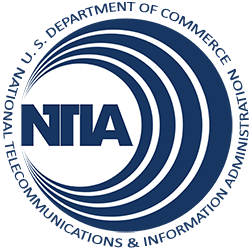Broadband’s ability to expand educational and employment opportunities is especially meaningful for Americans who are deaf or hard of hearing, a community that faces unique challenges in education and that suffers from a rate of unemployment much higher than the national average. Communication Service for the Deaf, Inc. (CSD) intends to expand broadband adoption among people who are deaf and hard of hearing and provide them with online tools to more fully participate in the digital economy. The project proposes to employ a combination of discounted broadband service and specialized computers, technology training from an online state-of-the art support center customized to the community’s needs, public access to videophones at anchor institutions from coast to coast, and a nationwide outreach initiative. Thousands will gain online access to all the Internet has to offer, including sign language interpreters, captioned video services, and other content and functionalities designed especially to advance their educational, employment, and healthcare interests.
Wyoming

| Grantee | Total Award | Type |
|---|---|---|
| Communication Service for the Deaf, Inc. | $14,988,657 | Sustainable Adoption |
| EdLab Group Foundation (Formerly known as Puget Sound Center for Teaching, Learning and Technology) | $4,153,833 | Broadband Data & Development |
| Silver Star Telephone Company(2) | $5,063,623 | Infrastructure |
| Silver Star Telephone Company, Inc.(1) | $5,608,179 | Infrastructure |
| University Corporation for Advanced Internet Development | $62,540,162 | Infrastructure |
Project Components
State Broadband Capacity Building:
This project will enhance Wyoming’s capacity to support and sustain regional broadband investment. These activities will include creating modular training tools for regional broadband planning teams, creating systems to monitor and evaluate progress on broadband adoption, initiatives focusing on the viability of future broadband investment strategies, and establishing a state broadband director, employed by the State of Wyoming, to coordinate broadband activities within the state.
Technical Assistance:
This project supports the creation of educational materials and the provision of training to community anchor institutions and small businesses relating to broadband policy, technology developments and technology funding opportunities.
Data Collection, Integration, and Validation:
This project was originally funded for broadband planning activities and two years of data collection. In September of 2010, this project was amended to extend data collection activities for an additional three years and to identify and implement best practices
Silver Star Telephone Company will use BTOP funding to complete key portions of its broadband network. The Expanding Greater Yellowstone Area Broadband Opportunities project proposes to close an 89-mile gap in its existing Wyoming fiber network between the continental divide at Togwotee Pass and Jackson, bringing comprehensive broadband services to 11 counties in the western part of the state. The Delivering Opportunities: Investing in Rural Wyoming Broadband project proposes to close a 38-mile network gap in northwest Wyoming over the Teton Pass to southeast Idaho, bringing broadband to five additional counties.
Silver Star Telephone Company will use BTOP funding to complete key portions of its broadband network. The Expanding Greater Yellowstone Area Broadband Opportunities project proposes to close an 89-mile gap in its existing Wyoming fiber network between the continental divide at Togwotee Pass and Jackson, bringing comprehensive broadband services to 11 counties in the western part of the state. The Delivering Opportunities: Investing in Rural Wyoming Broadband project proposes to close a 38-mile network gap in northwest Wyoming over the Teton Pass to southeast Idaho, bringing broadband to five additional counties.
As part of a longstanding project to connect essential community anchor institutions across the country, and facilitate closer collaboration and long-term benefits for education, research, healthcare, public safety, and government services, the University Corporation for Advanced Internet Development (UCAID) proposes a comprehensive 50-state network benefitting approximately 121,000 community anchors. The project proposes a large-scale, public-private partnership to interconnect more than 30 existing research and education networks, creating a dedicated 100-200 Gbps nationwide fiber backbone with 3.2 terabits per second (TBps) total capacity that would enable advanced networking features such as IPv6 and video multicasting. The project plans to connect community anchors across all disciplines into virtual communities with shared goals and objectives, including colleges, universities, libraries, major veterans and other health care facilities, and public safety entities, with additional benefits to tribes, vulnerable populations, and government entities.
